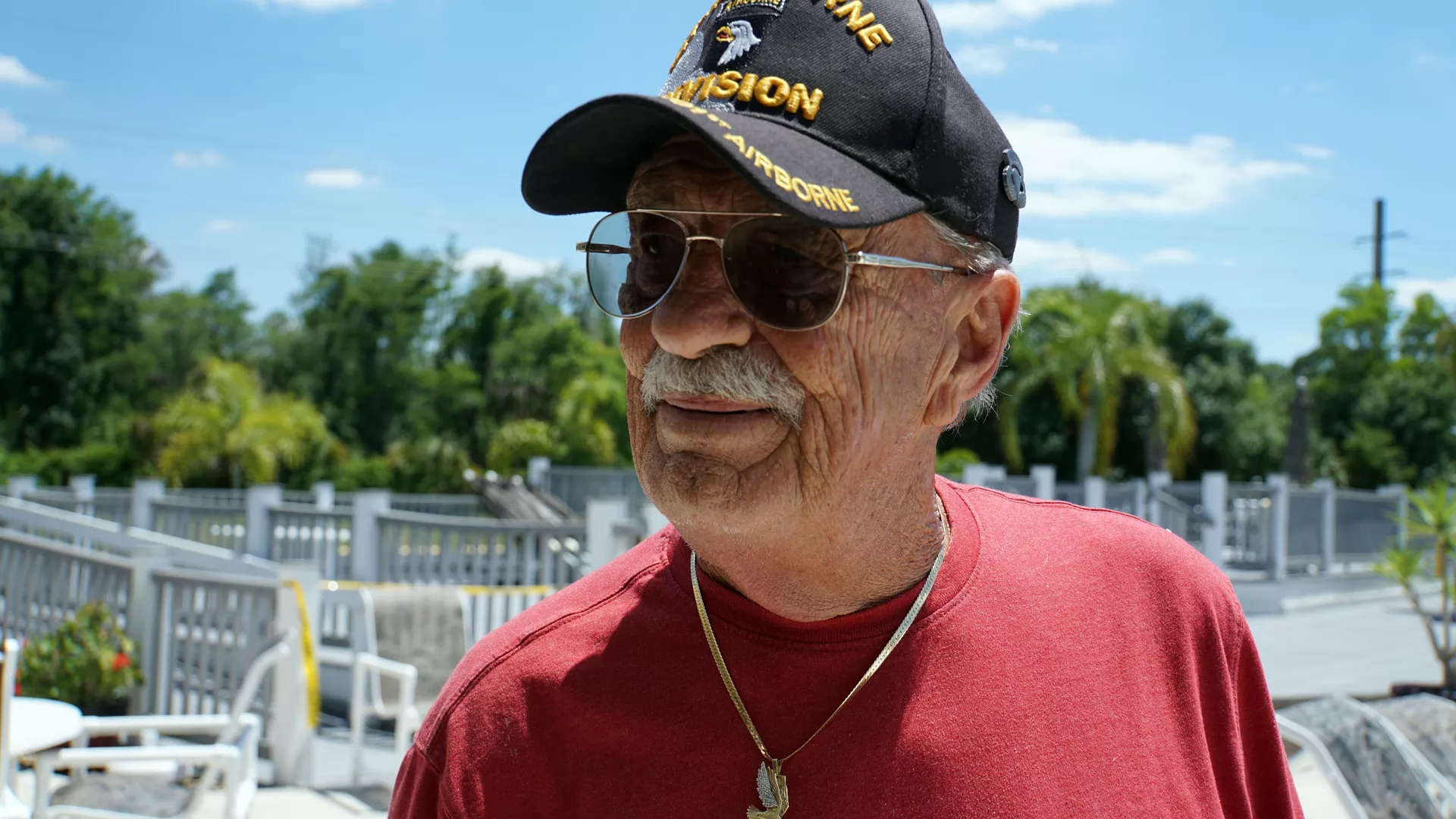Voice of Dozier School victims dies, 76
Add Axios as your preferred source to
see more of our stories on Google.

Jerry Cooper during a 2019 interview in the community center of his neighborhood in Fort Myers. Photo: Leila MACOR / AFP via Getty Images
Jerry Cooper, who led an organization of former wards of Florida's oldest state-run reform school and helped win a formal apology from state lawmakers for a century of abuse at the school, died Saturday at home in Cape Coral after battling cancer, his wife, Babbs, tells Axios.
- He was 76.
Why it matters: Cooper became the face of a group of men called the White House Boys — named after a white-block building where they were punished while attending the Dozier School — and bluntly spoke of the sadistic abuse he and other boys suffered at the hands of school staff.
- He was a vocal force in the effort to close the school and exhume the bodies of dozens of boys who died in custody so the remains could be returned to their families.
- Cooper was mentally burdened by his childhood trauma, which often manifested in rage and mistrust. As a reporter for the St. Petersburg Times, Ben interviewed Cooper dozens of times and witnessed his struggle with anger and hostility.
Yes, but: His rage made him an ideal spokesperson for some 500 abused men, and he represented the survivors in major news outlets like the BBC, the New York Times, the Guardian and NPR.
- Once, when he was certain the state was hiding the graves of boys, he had Ben drop him off on the edge of the Dozier school property in full camouflage. He explored Florida swampland for four hours before giving up.
Flashback: Cooper was sent in 1960 to what was then called Florida School for Boys in Marianna, an hour west of Tallahassee, where he was beaten bloody with a weighted leather strap.
- He passed out and another boy later told him he counted 135 lashes. Cooper paid to take a lie detector test in front of a reporter to prove he was telling the truth.
The big picture: His plain-spoken outrage, along with his wife's empathy and networking skills, kept the White House Boys' plight in the public eye for more than a decade, since the first victims stepped forward in 2008.
- Cooper appeared in dozens of television interviews and at least four documentaries about the Dozier School.
Babbs Cooper tells us her husband didn't want a funeral, but there will be a private service.
